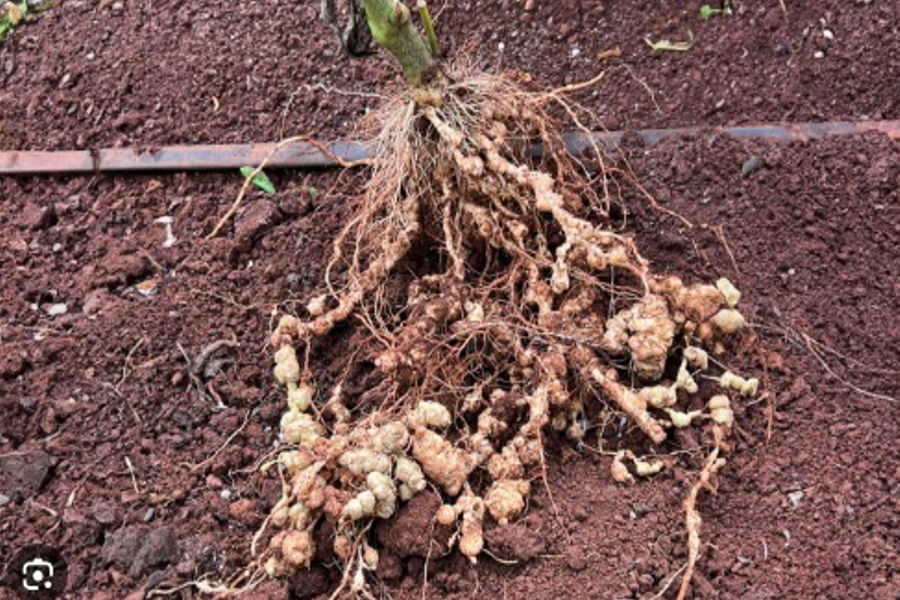Control of Tomato Root-Knot Nematodes
Tomato crops often suffer from root-knot nematodes (Meloidogyne spp.), which damage roots, reduce plant growth, and lead to lower yields. A highly effective, eco-friendly method to manage this problem is using neem or karanja cake enriched with beneficial microbes like Trichoderma harzianum, Pseudomonas fluorescens, and Bacillus subtilis.
What to Apply
-
Neem or Karanja Cake: 250–500 kg per acre
-
Trichoderma harzianum: 2–3 kg per acre
-
Pseudomonas fluorescens: 2–3 kg per acre
-
Bacillus subtilis: 2–3 kg per acre
How It Works
-
Neem and karanja cake release natural compounds that inhibit nematode eggs and larvae.
-
Trichoderma parasitizes nematode eggs and harmful fungi in the soil.
-
Pseudomonas fluorescens and Bacillus subtilis produce secondary metabolites that suppress nematodes and promote root health.
Application Method
-
Mix neem or karanja cake with Trichoderma, Pseudomonas, and Bacillus powders.
-
Apply uniformly to soil 10–15 days before transplanting.
-
Maintain adequate soil moisture to activate microbial growth.
Key Benefits
-
Significant reduction in root gall formation
-
Improved root development and plant vigour
-
Enhanced flowering and fruit set
-
Long-term improvement in soil microbial health
